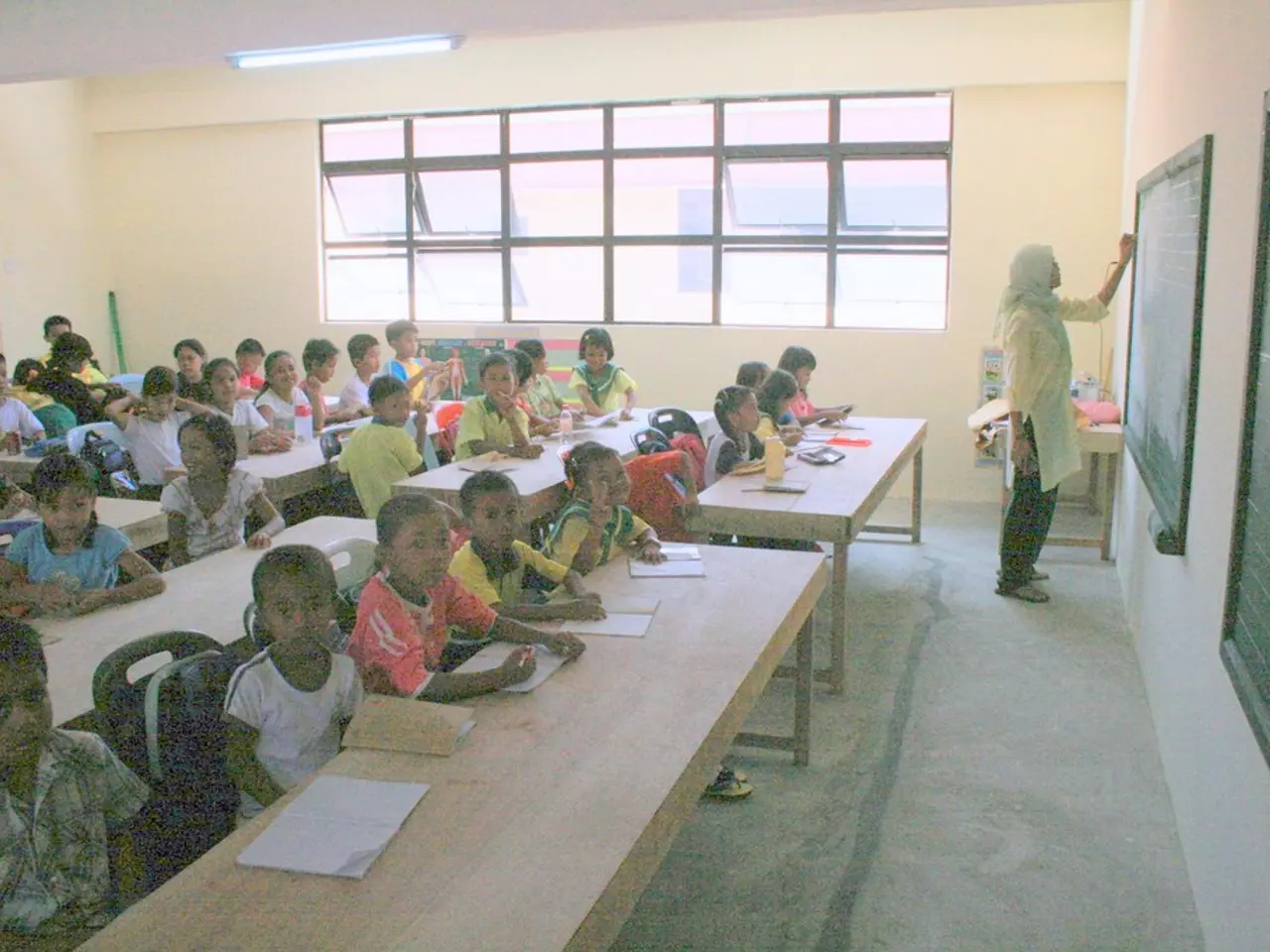Strategies for Evaluating Student Learning in Primary Education Institutions
In the dynamic world of primary education, a shift towards a more student-centered approach is taking centre stage. This transformation is embodied in the Assessment for Learning (AfL) method, which views assessment as a tool for enhancing student learning rather than a mere means of evaluation.
At the heart of AfL are formative assessments, providing real-time insights into students' understanding. These assessments, often in the form of online quizzes, interactive games, or digital portfolios, offer immediate feedback, allowing students to understand their strengths and areas for improvement.
Effective feedback is crucial in this process. It should be timely, specific, and constructive, reinforcing learning and fostering a growth mindset. This feedback-rich environment encourages students to take ownership of their learning journey, viewing it as a continuous improvement process rather than a fixed endpoint.
Primary schools are also embracing collaborative and project-based assessments, which foster critical thinking and problem-solving skills. These assessments, such as group projects or presentations, encourage students to work together, promoting teamwork and collaboration.
Regular updates on student progress, parent-teacher meetings, and workshops to explain assessment methods are effective communication strategies for parents. Involving parents in the assessment process enriches the learning experience for children, encouraging students to take ownership of their learning process.
Continuous professional development for educators ensures that they stay abreast of innovative assessment techniques, fostering a shared vision of effective practices. This ongoing learning and development helps teachers adapt their teaching strategies to meet the unique needs of each student, creating a more personalized learning experience.
Artificial intelligence and machine learning tools are expected to play a significant role in the future of AfL in primary schools. These tools can diagnose learners' readiness and misconceptions during lessons, adapting instruction immediately for individualized support and maximizing engagement and progress.
In summary, effective primary school AfL involves a cycle of assessment, feedback, student reflection, and teacher adaptation supported by leadership and clear structures—all aimed at making students active, self-directed learners. By embedding these principles and practices consistently, primary schools help students take ownership of their learning journeys, fostering motivation, deeper understanding, and continuous improvement.
Read also:
- Inherent Skills Know No Bounds, Yet Access to Employment Remains Unequal: Suggestions for a More Equitable Job Market of the Future
- Revealed: Top and Bottom UK Banks for Digital Banking Services
- Affordable supermarket purchases from dollar stores are not sabotaging typical American nutritional habits, according to research findings
- Impact of Chronic Stress on Cognitive Function and Brain Integrity Over Time




